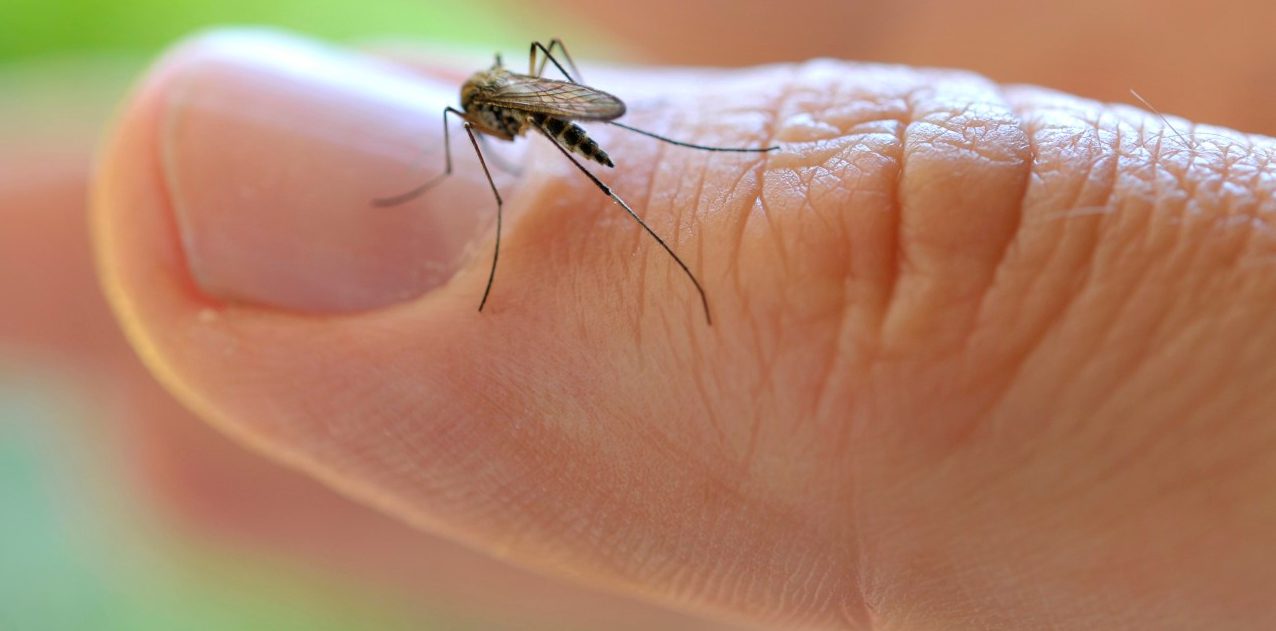How to Repel Mosquitoes

If you want to know how to repel mosquitoes at home and on the go, you’ll find many possible approaches, but how well each one works is open to debate.
No one likes mosquitoes. It’s as if they were put on Earth to remind us that suffering is part of everyday life, at least during warm weather.
In North America, they’re generally just a nuisance, although they can carry and spread the West Nile virus, and, rarely, the La Cross virus. Mosquitoes also have spread the Zika virus throughout South and Central America. Because they are so incredibly annoying — in real time and for days later as you resist the urge to scratch bites — there is a huge industry built around controlling mosquitoes or keeping them from biting you.
YOU MIGHT ALSO LIKE: How to Stay Healthy While Traveling Abroad
Do you attract mosquitoes?
Some people believe they attract mosquitoes more than other folks because the pests find they are tastier targets. Research suggests that’s true. The attraction lies in our genes and the genes of mosquitoes, which evolved with us.
“We know that mosquitoes have evolved to hone in on the carbon dioxide that we exhale and signatures like body heat,” Shannon Bennett, PhD, a microbiologist at the California Academy of Sciences, told Men’s Health. Other factors are the microbes living on your skin and natural odors all humans produce that are triggered at the genetic level.
How to repel mosquitoes
Now that you know you may, indeed, be a mosquito magnet, you can take some DIY steps to keep them away. Most are inexpensive and easy to set up, and you control the approach and ingredients, eliminating chemicals you may not want to use for personal reasons.
The easiest way to reduce mosquito populations dramatically without cost is to remove all standing water, where they can breed, from anywhere around your house. The only challenge is to think of spots that you normally wouldn’t, like crumpled tarps, woodpiles, and your neighbor’s yard. (Talk to your neighbor first.) Mosquitoes can breed in as little as a teaspoon of water.
You can make it harder for mosquitoes to hang around by trimming bushes and cutting your grass short, and by attracting animals that eat them. Bats, some bird species, frogs, toads, and dragonflies prey on mosquitoes. One little brown bat (by far the most common) can eat up to 1,000 mosquitoes an hour. To attract mosquito killing bats, you can build or buy a bat house for your yard. The National Wildlife Federation offers free bat house plans and advice on where to put a bat house to attract the creatures. If you have an ornamental pond, add some goldfish. They eat mosquito larvae.
You can have a bird bath in your yard that doesn’t become a breeding ground for mosquitoes, if you add larvicide. Read labels to make sure you opt for the type that is safe for birds and other wildlife.
Don’t forget the inside of your house. The Centers of Disease Control and Prevention (CDC) advises making sure all windows have screens with no holes. At least once a week, empty and change water in any vases or flower pots where mosquitoes can deposit larvae inside your home.
Other mosquito repelling strategies
It’s easy to find other non-toxic, natural solutions purported to keep mosquitoes out of your yard and, hopefully, off your body. Some people claim yellow light bulbs in patio lamps won’t attract the biting pests like white bulbs do. Others swear leaving a glass of beer around will attract mosquitoes to their deaths. But there’s scant research to show many of these tactics are effective.
Citronella, in candles and other forms, has long been hyped as a mosquito repellent. It smells nice, but researchers found it doesn’t do much to repel mosquitoes and neither do many other herbal concoctions. High-frequency sound devices advertised to drive away mosquitoes were also not successful in tests.
But there was one natural mosquito repellent that wowed the scientists: Oil of lemon eucalyptus sprays reduced mosquito attraction by 60 percent, according to a report in Science. In fact, the natural spray was just as effective as the mosquito repellent DEET (chemical name, N,N-diethyl-meta-toluamide), the active ingredient in many mosquito repellent products.
There has been past controversy about the safety of DEET. The U.S. Environmental Protection Agency (EPA), however, says multiple studies show the chemical is safe, even for children, although the EPA acknowledges some youngsters may have an allergic reaction. DEET is used by an estimated one-third of Americans to protect them from mosquitoes and the illnesses mosquitoes can transmit.
Tried and true way to conquer mosquitoes
Local governments often spray areas for mosquito control, especially during an outbreak of a mosquito-borne disease. Instead of using chemical-based pesticides of the past, governments and private citizens are using a natural toxin, which halts the mosquito population.
The toxin is produced by a subspecies of the bacteria Bacillus thuringiensis, called israelensis, or Bti. Although Bti doesn’t kill adult mosquitoes, it does kill larvae. You can spray Bti on plants and add it to standing water and containers, such as rain barrels, fountains, ponds, and pools that are not in use.
Not only is Bti effective, the EPA-approved larvicide is not toxic to people and will not harm pets and wildlife, fish, or other insects, including honeybees, according to the CDC.
Updated:
August 25, 2022
Reviewed By:
Janet O’Dell, RN